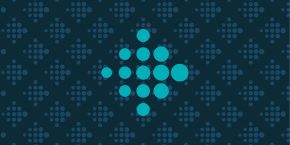
The Apple Watch popularized the concept of “closing your rings,” and Google Fit has Heart Points. Meanwhile, Fitbit — by nature of being around for so long — more prominently emphasizes step counts and miles than competitors. More recently, it’s found branding success in people comparing Sleep Scores, while there’s also one for stress. Fitbit today announced the Daily Readiness Score for Premium subscribers as the next metric you might care about.
Fitbit’s Daily Readiness Score is comprised of three metrics:
- Activity level: Heart rate tracking measures the impact of daily activity on your body. This level is personalized and compared to your regular exertion levels to get a measure of fitness-fatigue.
- Heart rate variability: Fitbit considers HRV — which is calculated
during deep sleep(see update below) over the course of a night — a “great measure of recovery.” Higher levels mean “your body can easily transition from rest to activity.” Meanwhile, lower HRV can be due to stress or overexertion/tiredness, and indicate you’re getting sick. - Sleep: This is an important factor as poor slumber will leave your fatigued with Fitbit factoring several nights rather than just the most recent.
Update 11/10: With yesterday’s launch of the Daily Readiness Score, Fitbit has changed when heart rate variability (HRV) is calculated from “during deep sleep” — which was the case during the August announcement — to over an entire night’s sleep.
Taken together, it helps “assess when you’re ready to push yourself physically.” Higher (“excellent”) scores mean you’re good to exercise, with Daily Readiness — which is delivered every morning — accompanied by recommended activity levels.


“Low readiness” generates suggestions to prioritize recovery if you’ve been particularly active recently, with the goal being to “build a smarter routine that is more in tune with your body”:
Daily Readiness is built on research that proves taking time to recover can generate stronger results in the long run versus pushing yourself all the time. Pushing yourself too hard could lead to overtraining or injury and can impact your mood, sleep, appetite and weight.
Both are accompanied by activity video suggestions. For example, Fitbit will suggest yoga, stretching, and meditation on low-score days.
A Fitbit Premium subscription is required to see your Daily Readiness Score — which is officially “coming soon” — with the following devices supported:
Fitbit Sense, Versa 3, Versa 2, Charge 5, Luxe and Inspire 2

FTC: We use income earning auto affiliate links. More.



Comments